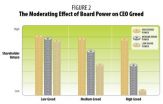(Press-News.org) This news release is available in Portuguese.
This news release is available in Portuguese.
A research group led by Christen Mirth at Instituto Gulbenkian de Ciência (Portugal) uncovered that the development of wings in fruit flies does not progress synchronously with the organism's development. Instead, it is coordinated with the whole body only at distinct 'milestones'. This study, published in the latest issue of the scientific journal PLOS Genetics*, helps explain how an organism facing environmental and physiological perturbations retains the ability to build correct functional organs and tissues in a proportional adult body.
For a growing organism it is essential to have robust developmental processes ensuring that the developing organs and tissues are formed correctly even in the face of environmental or physiological perturbations. To achieve robustness, the processes that generate individual organs must, at some level, be integrated across the whole body to ensure that a correctly patterned and proportioned adult is produced at the end of development. Christen Mirth and colleagues proposed to study how organ and whole-body development is coordinated, using the fruit fly, Drosophila melanogaster, as a model organism. The juvenile period in the fruit fly comprises three larval moults, followed by a wandering stage where larvae leave the food and search for a site to begin metamorphosis at a stage called pupariation. The research team focused on these so-called developmental events to study how the development of wings is coordinated with the whole body of the fruit fly larvae.
The researchers first analysed the expression of six genes involved in the development of wings in normal conditions of growth, i.e. at a temperature of 25ºC, and generated a detailed staging scheme. Next, the researchers changed the temperature to affect the growth conditions of the larvae and analyzed the rate of wing development compared to the whole-body development. It is known that flies grow faster at higher temperatures and grow slower at lower temperatures. However, the researchers observed that the development of the wings was slower at 29ºC, compared to flies growing in normal conditions or flies growing at 18ºC. "This result surprised us, as we could clearly observe a delay in the development of these wings in wandering stage larvae, but their progression accelerated towards the stage of pupariation. This means that development shows variability in its progression, but converges at the milestone of pupariation", explains Marisa Oliveira, first author of this study.
Next, researchers modified the larval physiology by interfering with the hormone ecdysone that regulates the different developmental events in the larvae, such as wandering and pupariation. Similar to the temperature manipulations, when they altered the timing of ecdysone synthesis, they found that the wings developed slowly at first, but accelerated their development to achieve coordination at the stage of pupariation.
These results support the hypothesis proposed by this research team, that the development of the wings, in the fruit fly, is aligned with the whole-body development at two milestones: moulting and pupariation.
Marisa Oliveira concludes: "With this work we propose a new paradigm for thinking about organ-organ and organ-body coordination during development. We suggest that organisms achieve this coordination not by continuous but rather by discrete communication focused on developmental milestones".
Christen Mirth adds: "The next challenge is to understand the nature of this communication at milestones."
INFORMATION:
This research was conducted at Instituto Gulbenkian de Ciência (Portugal) and funded by the Calouste Gulbenkian Foundation (Portugal) and Fundação para a Ciência e a Tecnologia (FCT, Portugal).
*Oliveira, M.M., Shingleton, A.W., Mirth, C.K. (2014) Coordination of wing and whole body development at developmental milestones ensures robustness against environmental and physiological perturbations. PLOS Genetics 10 (6): e1004408, doi/pgen.1004408.
http://www.plosgenetics.org/doi/pgen.1004408
New study explains how organs coordinate their development with the whole body
2014-06-20
ELSE PRESS RELEASES FROM THIS DATE:
Greedy CEOs bad for business
2014-06-20
Yes, Virginia, there is greed. Greedy managers. Corporate greed. Greedy behavior. In fact, a web database search shows you can find such phrases in the business press over 18,000 times, confirming the subject's popularity in everyday media. But you need not fear greed, Virginia, because believe it or not, you can moderate it.
In a forthcoming article in the top-ranked Journal of Management, new research by University of Delaware assistant professor Katalin Takacs Haynes examines the effects of greed on shareholder wealth and looks at whether various contextual factors, ...
Children's Research Institute finds key to identifying, enriching mesenchymal stem cells
2014-06-20
DALLAS – June 20, 2014 – The Children's Medical Center Research Institute at UT Southwestern (CRI) has identified a biomarker that enables researchers to accurately characterize the properties and function of mesenchymal stem cells (MSCs) in the body. MSCs are the focus of nearly 200 active clinical trials registered with the National Institutes of Health, targeting conditions such as bone fractures, cartilage injury, degenerative disc disease, and osteoarthritis.
The finding, published in the journal Cell Stem Cell on June 19, significantly advances the field of MSC ...
IOM: Effectiveness of PTSD treatments provided by DOD & VA unknown
2014-06-20
WASHINGTON -- The U.S. Department of Defense and U.S. Department of Veterans Affairs should track the outcomes of treatment for post-traumatic stress disorder (PTSD) provided to service members and veterans and develop a coordinated and comprehensive strategy to do so, says a new congressionally mandated report from the Institute of Medicine. Without tracking outcomes, neither DOD nor VA knows whether it is providing effective or adequate PTSD care, for which they spent $294 million and more than $3 billion, respectively, in 2012. The report is the second of a two-phase ...
Researchers identify mitochondrial mutation linked to congenital myasthenic syndrome
2014-06-20
Amsterdam, NL, 20 June 2014 – Although significant progress has been made over the last 25 years to identify genetic abnormalities associated with congenital myasthenic syndromes (CMS), many patients remain genetically undiagnosed. A report in the inaugural issue of the Journal of Neuromuscular Diseases identifies a gene defect in mitochondria, specifically the citrate carrier SLC25A1, that may underlie deficits in neuromuscular transmission seen in two siblings.
"While mitochondrial gene defects can cause a myriad of neurological disorders including myopathies and neuropathies, ...
Molecule regulates production of antibacterial agent used by immune cells
2014-06-20
Researchers have discovered how a protein molecule in immune cells promotes the production of nitric oxide, a potent weapon in the cells' arsenal to defend the body from bacterial attack. The protein may offer a target for reining in the inflammatory response, which must be able to fight infection without damaging tissue.
The study was published in the Journal of Innate Immunity.
NFATc3 is one of several related protein molecules known to play a role in regulating genes in the T and B cells of the immune system. Ravi Ranjan, research scientist at the University of Illinois ...
Benefits of PTSD treatment going unmeasured, says Institute of Medicine Report
2014-06-20
VIDEO:
IOM report out today demonstrates that the VA and US Department of Defense do not measure the effectiveness of treatment of post-traumatic stress disorder. Columbia University Mailman School of Public...
Click here for more information.
June 20, 2014 -- A report from the Institute of Medicine (IOM) finds that the U.S. Department of Defense (DOD) and U.S. Department of Veterans Affairs (VA) do not measure the effectiveness of treatment of post-traumatic stress disorder ...
New research reveals that emperor penguins are more willing to relocate
2014-06-20
A new study led by the University of Minnesota offers new insights on the long-term future of emperor penguins by showing that the penguins may be behaving in ways that allow them to adapt to their changing environment better than we expected.
Researchers have long thought that emperor penguins were philopatric, which means they would return to the same location to nest each year. The new research study used satellite images to show that penguins may not be faithful to previous nesting locations.
Researchers involved in the new study found six instances in just three ...
No evidence of long-term PTSD risk in patients with awareness during surgery
2014-06-20
June 20, 2014 – Patients with confirmed episodes of awareness during anesthesia and surgery don't seem to be at increased risk of posttraumatic stress disorder (PTSD) or other problems with psychosocial well-being at long-term follow-up, reports a study in Anesthesia & Analgesia.
"We found no indication that intraoperative awareness with recall had any long-term effects on patients' psychosocial outcome," concludes the new research by Dr Tanja Laukkala of the Centre for Military Medicine in Helsinki, Finland. Anesthesiologists "should respond to the findings…with a ...
KIT researchers protect the princess from the pea
2014-06-20
This news release is available in German.
In the past years, invisibility cloaks were developed for various senses. Objects can be hidden from light, heat or sound. However, hiding of an object from being touched still remained to be accomplished. KIT scientists have now succeeded in creating a volume in which an object can be hidden from touching similar to a pea under the mattress of a princess. The results are now presented in the renowned Nature Communications journal.
Magicians and illusionists make things disappear by means of a skilled use of mental ...
Citing 'urgent, acute' mental health issues, especially in Africa, experts petition gov'ts to act
2014-06-20
Calling global mental health problems "acute and urgent," 37 leading medical authorities from 11 countries have published a joint declaration calling for basic mental health care in Africa.
The experts also call for global mental health objectives to be included among the United Nations' post-2015 Sustainable Development Goals, for a special UN General Assembly High Level Meeting on Mental Health by 2017, and for efforts to end the stigma and human rights violations inflicted on mental health patients.
Published in the journal Global Health Action, the declaration was ...




